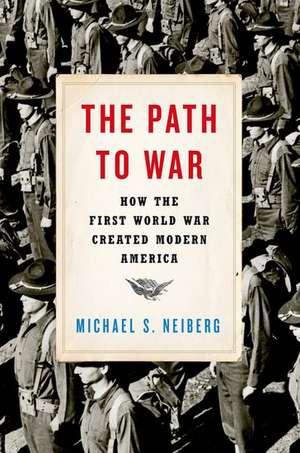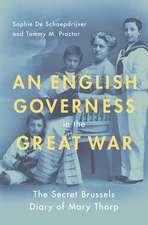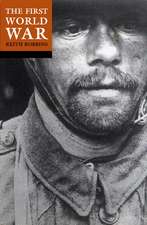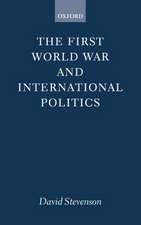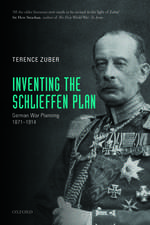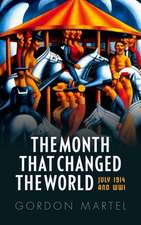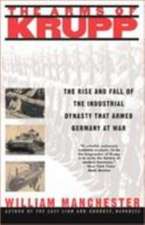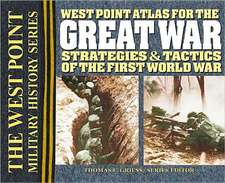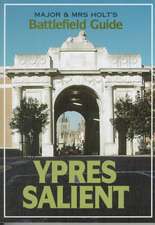The Path to War: How the First World War Created Modern America
Autor Michael S. Neibergen Limba Engleză Hardback – 24 noi 2016
Preț: 193.27 lei
Nou
Puncte Express: 290
Preț estimativ în valută:
36.99€ • 38.42$ • 30.72£
36.99€ • 38.42$ • 30.72£
Carte disponibilă
Livrare economică 13-27 ianuarie 25
Preluare comenzi: 021 569.72.76
Specificații
ISBN-13: 9780190464967
ISBN-10: 0190464968
Pagini: 320
Ilustrații: 16pp b&w insert
Dimensiuni: 165 x 236 x 33 mm
Greutate: 0.52 kg
Editura: Oxford University Press
Colecția OUP USA
Locul publicării:New York, United States
ISBN-10: 0190464968
Pagini: 320
Ilustrații: 16pp b&w insert
Dimensiuni: 165 x 236 x 33 mm
Greutate: 0.52 kg
Editura: Oxford University Press
Colecția OUP USA
Locul publicării:New York, United States
Recenzii
Considering the importance of America's response to the challenges presented by the First World War, there is -- not surprisingly -- an extensive body of literature on the American experience in the years leading up to the declaration of war in April 1917. Rarely, if ever, has this story been told as well as in Michael S. Neibergs The Path to War: How the First World War Created Modern America ... [A] study that is eminently readable, impressively researched, and remarkably thorough in its treatment of the various issues and challenges Americans wrestled with as they found it increasingly difficult, and then finally impossible, to believe the nation's interests would be best served by remaining out of the war.
Notă biografică
Michael S. Neiberg is Professor of History at the Army War College and co-director of the Center for the Study of War and Society. He has also taught at the U.S. Air Force Academy and the University of Southern Mississippi. With backgrounds in social history, military history, French history, and American history, Neiberg has published widely on the theme of war in the world, especially in the era of the two world wars. His most recent books are Dance of the Furies: Europe and the Outbreak of World War I (2011), The Blood of Free Men: The Liberation of Paris, 1944 (2012), and Potsdam: The End of World War II and the Remaking of Europe (2015).
